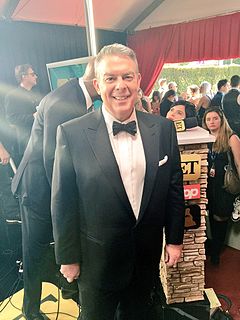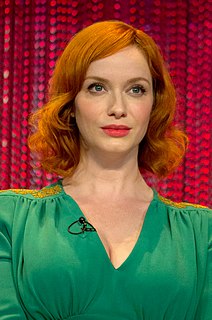A Quote by Steven Soderbergh
I've never been a snob. It [movie] is just about stories. And I've never felt just because it's a big screen and you plop down your eight bucks that gives it a special meaning. It's just "Are you good at telling a story?"
Related Quotes
Stories? We all spend our lives telling them, about this, about that, about people … But some? Some stories are so good we wish they’d never end. They’re so gripping that we’ll go without sleep just to see a little bit more. Some stories bring us laughter and sometimes they bring us tears … but isn’t that what a great story does? Makes you feel? Stories that are so powerful … they really are with us forever.
Your father tells you a story when you're a kid, or your mother or your uncle or whoever it is. You sit there with your mouth open, and your mind goes to all these places they're telling you about that you've never seen, and you're agape. You just can't believe that things can happen like that - but it's just so direct.
Well, let’s start with the maxim that the best writing is understated, meaning it’s not full of flourishes and semaphores and tap dancing and vocabulary dumps that get in the way of the story you are telling. Once you accept that, what are you left with? You are left with the story you are telling.
The story you are telling is only as good as the information in it: things you elicit, or things you observe, that make a narrative come alive; things that support your point not just through assertion, but through example; quotes that don’t just convey information, but also personality.
I love my body as it is. People in the industry have been telling me to lose weight for years but I like the way I look. I give credit to my mom for helping me feel good about my appearance - for making sure I never felt embarrassed about my body, because she was never worried about looking too big.
There's a screen direction in the script for the pilot where it says, 'Jim Harper, mid-20s, enters,' and it said something to the effect of: 'He's confident without being cocky. He has no idea that he could be considered attractive, because he saw All The President's Men when he was thirteen and never looked up.' It was just a great little gem of a screen direction, and I felt immediately from just that, that I had a good idea of how to play this guy.
I never wanted to be an actor. My dad was an actor, and he never brought joy home, so I didn't view it as something that I would want to do. But I got fired as a secretary, and then I started studying, I started doing it just to earn money. And it took me a long time to learn to love it. And what I loved was telling a story. I tried to avoid making plays or films that weren't telling a story that I felt was important. I discovered in the process that it makes you more empathic because you have to enter someone else's reality and learn to see through many other people's eyes.
Christian audience, I think, have grown very tired of movies that try to pander to them. For instance if someone goes, "Ok, we're designing what we're going to do with this movie. It's a Christian movie and they'll eat it up." And you know what? Consumers are smarter than that. They go, "The movie isn't that great and he thought that I would just be a sucker and plop my $10 down for it?" Because you're looking down at the audience. You can't pander to an audience.






































